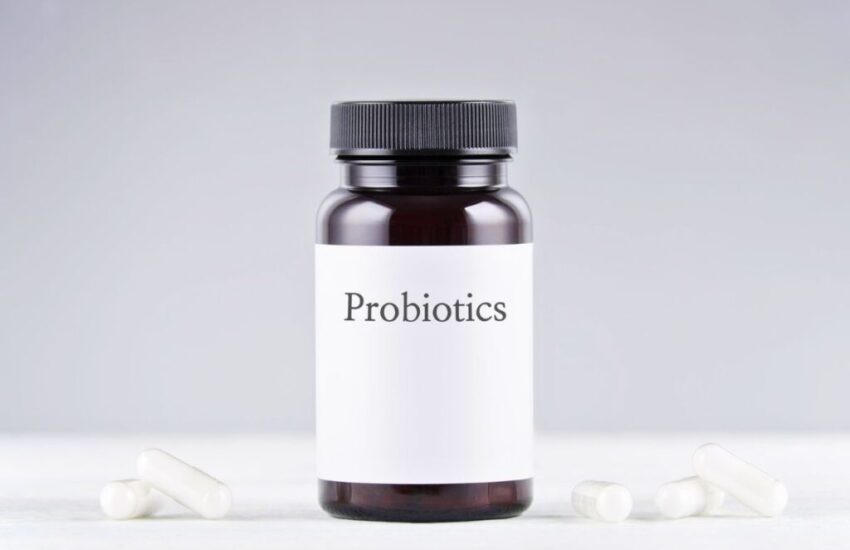Can You Take Too Many Probiotics? Signs To Watch Out For

Published June 11, 2025
Are you overloading on probiotics without realizing it? Probiotics are renowned for supporting gut health, enhancing digestion, and bolstering the immune system. But can too much probiotics do more harm than good? Overconsumption might lead to unexpected side effects and risks that deserve your attention.
In this article, we’ll explore everything you need to know about probiotics. Discover how they work, recognize signs of overuse, and learn tips for safe daily use.
What Are Probiotics, And How Do They Work?
Probiotics are live microorganisms popularly referred to as “good bacteria.” They naturally live in your gut and support digestion and overall health. These microbes include both bacteria and yeasts. You can find them in certain foods and supplements.
Some of the most well-known probiotic strains include:
- Lactobacillus
- Bifidobacterium
- Saccharomyces boulardii
Each strain offers unique health benefits. It can improve digestion, reduce bloating, or boost immunity.

The Importance Of Probiotics For Gut Health And Immune
Probiotics offer benefits beyond simply aiding digestion. Their effects extend to key areas of your health:
- Restoring gut health: Probiotics restore beneficial gut bacteria. Antibiotics can deplete your microbiome. Probiotics help reinstate balance. This can help minimize symptoms such as diarrhea, bloating, and gas.
- Enhancing immune function: Probiotics fight harmful bacteria and reduce inflammation. They boost your body’s natural defenses and support a healthier immune system.
- Supporting mental health: New research highlights the gut-brain connection. A balanced gut microbiome may help reduce anxiety and depression.
Source Of Probiotics
Probiotics can be easily incorporated into your diet through food or supplements. Here are some natural and convenient options:
- Fermented foods: Include foods like yogurt, kefir, kimchi, sauerkraut, and miso in your meals. These are rich in live, active cultures that support gut health.
- Probiotic supplements: Supplements provide targeted benefits with specific strains. They can help improve digestion, boost immunity, or enhance skin health.
Looking for a targeted probiotic? Bionaze is an excellent choice. It supports upper respiratory and ENT health. It contains BLIS K12 (Streptococcus salivarius K12) and Bifidobacterium Lactis BL-04, two clinically studied strains. These strains boost immune, ENT, and gut health.
How Much Probiotics Is Too Much?
Probiotics support gut health, but how much is too much? Finding the correct dosage is key to getting benefits without discomfort. Here’s what you need to know about recommended CFU levels and factors influencing intake.
Probiotic Dosage Guidelines
Probiotic intake is measured in colony-forming units (CFU), which represent the number of live, active microorganisms in each dose.
Here’s a general guideline:
- Children: 5-10 billion CFU daily
- Adults: 10-20 billion CFU daily
These recommendations may differ based on individual needs and the specific probiotic strain utilized.
Factors Influencing The Correct Probiotic Dosage
There’s no one-size-fits-all approach to probiotic intake. The ideal dosage depends on several factors:
- Age: The gut microbiome changes with age, which can influence your probiotic needs.
- Health conditions: Conditions such as irritable bowel syndrome (IBS) or diarrhea may require specific strains and varying doses of probiotics.
- Product formulation: Some supplements include higher CFU counts to account for bacteria loss during storage or digestion.
Overuse is rare in healthy people. It may cause issues for those with certain medical conditions. Always consult a healthcare professional for advice.

Side Effects Of Taking Too Much Probiotics
Probiotics are usually safe and beneficial. However, taking too much can cause side effects. This is especially true when trying a new strain or increasing your intake. Here are the signs of too much probiotics to watch out for:
Digestive Issues
The most common side effects are related to digestion and may include:
- Bloating
- Gas
- Abdominal discomfort
- Diarrhea
These symptoms are typically momentary and tend to subside as your body adapts to the probiotics.
Headaches Or Mental Fog
Some probiotics produce amines. These natural chemicals can trigger headaches. They may also cause brain fog in individuals who are sensitive to them.
Risks For Vulnerable Groups
For certain people, probiotics may pose unique risks:
- Weakened immune systems: Individuals with poor immune systems may have a greater risk of developing infections caused by probiotic bacteria.
- Patients undergoing surgery and those with chronic illnesses: Consult a doctor before starting probiotics in these cases, as they may have unforeseen impacts.
While probiotics can greatly support gut health, moderation, and proper guidance are key to ensuring they work safely and effectively.
Who Should Use Probiotic Supplements With Caution?
Probiotics offer numerous health benefits, but they aren’t suitable for everyone. Certain groups should approach their use carefully:
- Individuals with preexisting health conditions: People with liver disease, severe illness, or intestinal damage should consult a doctor. This helps prevent potential complications associated with probiotics.
- People on immunosuppressive medications. Individuals on chemotherapy or immunosuppressants face higher risks of side effects. They should consult a doctor before use.
- Children and older adults. Infants under one-year-old and seniors require specific probiotic strains. Proper dosages ensure safety and effectiveness while reducing risks.
Always consult a healthcare provider to know if probiotics are the right choice for you.
How To Safely Take Probiotics
Maximize the benefits of probiotics while minimizing potential risks with these straightforward tips:
Start Slowly
If you’re new to probiotics, begin with a low dose and gradually increase it. This approach can help reduce common side effects, such as gas or bloating, as your body adjusts.
Seek Professional Advice
See a healthcare provider to discuss your medical history and wellness goals. They can recommend the most suitable probiotic strain and dosage tailored to your specific needs.
Opt For Quality Supplements
Not all probiotics are created equal. When choosing a supplement, prioritize:
- Verified CFU counts
- Clear labeling of probiotic strains
- Third-party testing certifications, such as NSF or USP
Follow these steps to incorporate probiotics into your daily routine. Enjoy better gut health and overall wellness.
Frequently Asked Questions
Can you take too much probiotics?
While it’s rare to overdose on probiotics, taking too much can sometimes lead to mild digestive discomfort, such as bloating or gas.
How long do side effects last?
The majority of side effects are temporary and usually resolve within one to two weeks as your body adapts to the probiotics.
Should you stop using probiotics if you feel unwell?
If side effects persist for more than a few weeks or worsen over time, consult your doctor. They may recommend stopping probiotics or switching to a different strain.
Are higher CFU counts better?
Not always. The ideal CFU count depends on your specific health needs and how your body responds to the probiotics.
Can probiotics cause infections?
In rare instances, persons with poor immune systems or chronic illnesses may be at risk of developing infections from probiotics. Always consult a healthcare provider if you have any questions or concerns.
Why Choose Bionaze
Not all probiotics are created equal, and Bionaze is a testament to that. Packed with the powerful duo of BLIS K12 (Streptococcus salivarius K12) and Bifidobacterium Lactis BL-04, Bionaze goes beyond just supporting digestive health—it also promotes upper respiratory wellness.
Bionaze extends its benefits beyond gut health by addressing the oral and nasal microbiomes. This makes it a game-changer for anyone dealing with sinus problems, allergies, or ear infections.
Bionaze comes in a convenient lozenge form. It delivers beneficial bacteria directly to your mouth and throat, your first line of defense. This dual-action solution helps balance your microbiome and support your overall well-being.
Say goodbye to the ordinary and discover a probiotic designed to deliver more.

Finding The Right Balance With Probiotics
Probiotics offer significant benefits for digestion and immunity, but too much probiotics can lead to potential side effects if balance isn’t maintained. It’s essential to choose the proper strains and dosages tailored to your specific health needs. If you’re unsure or have any concerns, consult a healthcare professional. Prioritizing your gut health is essential for enhancing your overall well-being.
Ready to support both your gut and respiratory health? Try Bionaze—a dual-action probiotic specially formulated to help you feel your best, inside and out.
Benefit From The Latest Advancements In Probiotic Science With Bionaze
Bionaze is a proprietary blend of probiotics proven to promote ear, nose, and throat health, improve digestion, and support your immune system. The active ingredients BLIS K12, and BL-04 are considered among the best probiotics according to science.
Get 25% Off Your First Order when you use BIO25 at checkout!

This Content Has Been Reviewed For Factual Accuracy
This content has undergone thorough fact-checking by our team of internal experts. Learn more about the meticulous editorial standard for our website here.
ADVERTISEMENT

About The Author
Hi, I’m Corinne Grace, a proud nursing graduate from Riverside College with a flair for writing. I specialize in health and wellness topics, using my educational background to weave informative and attention-grabbing articles that appeal to a wide variety of readers.




